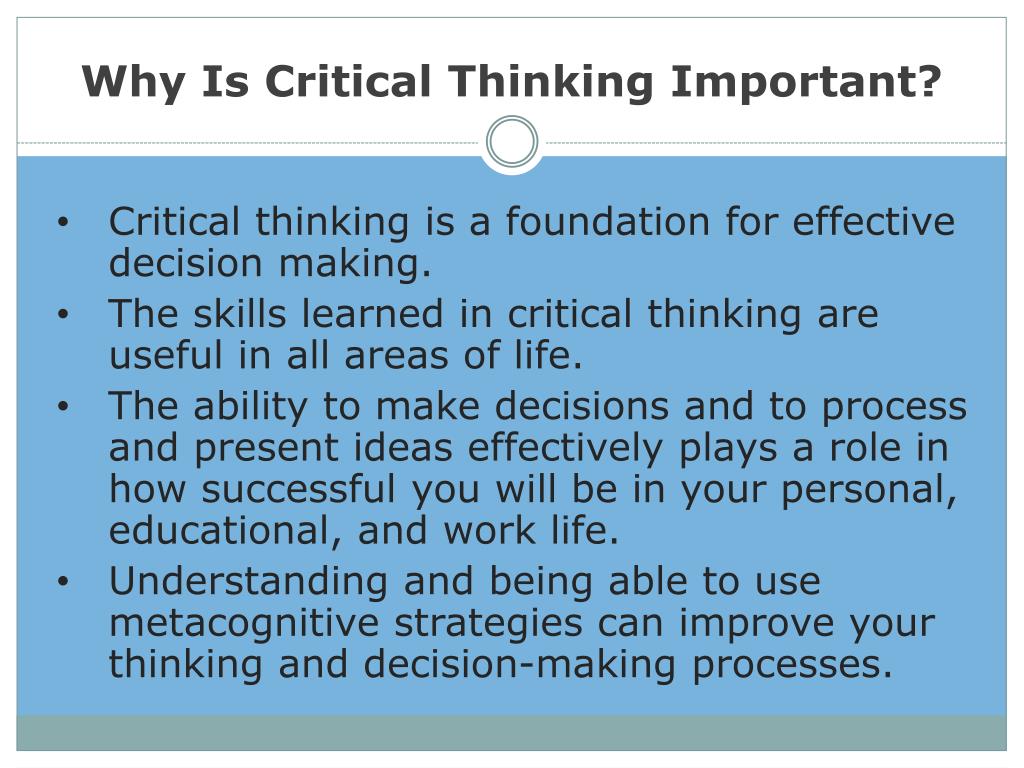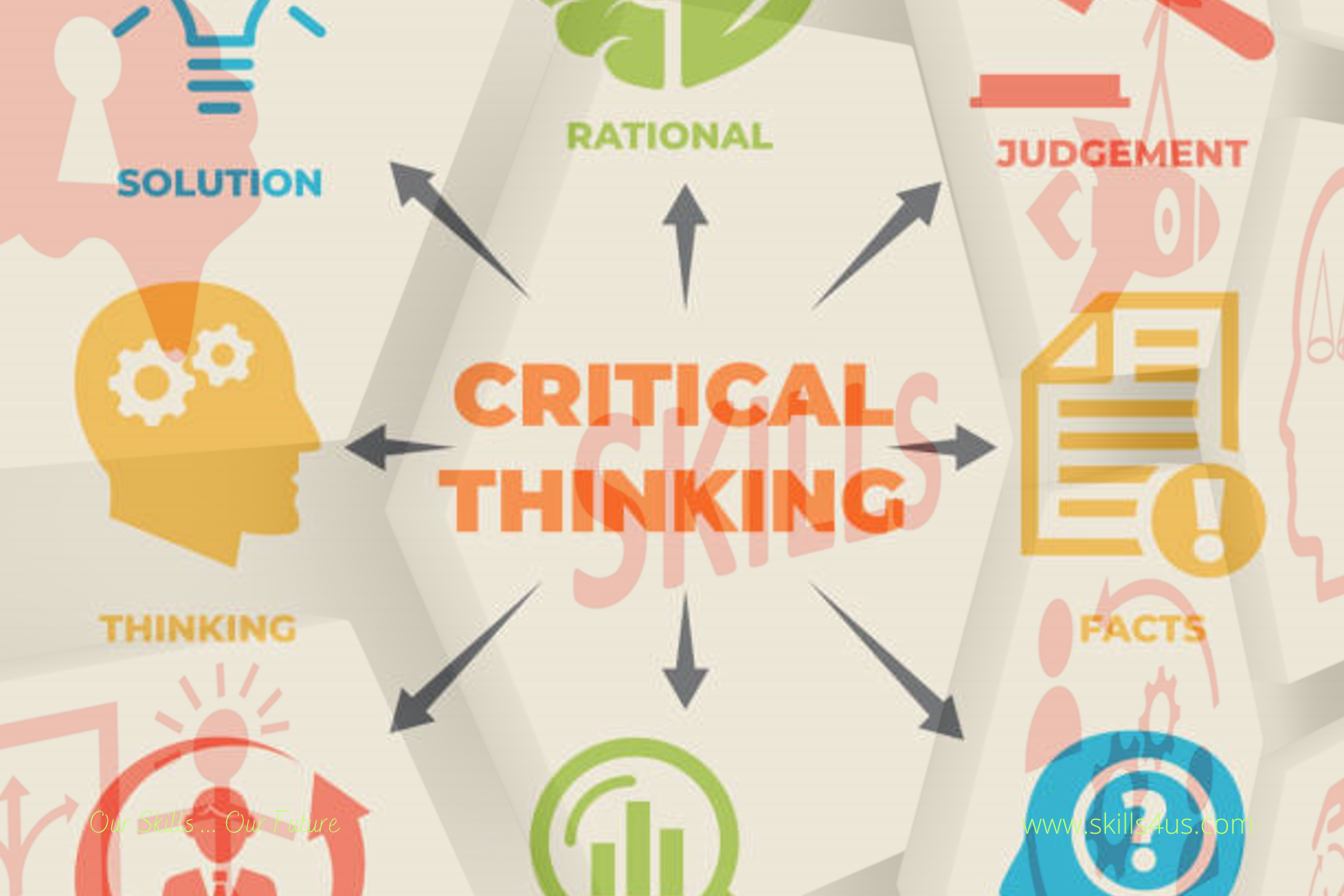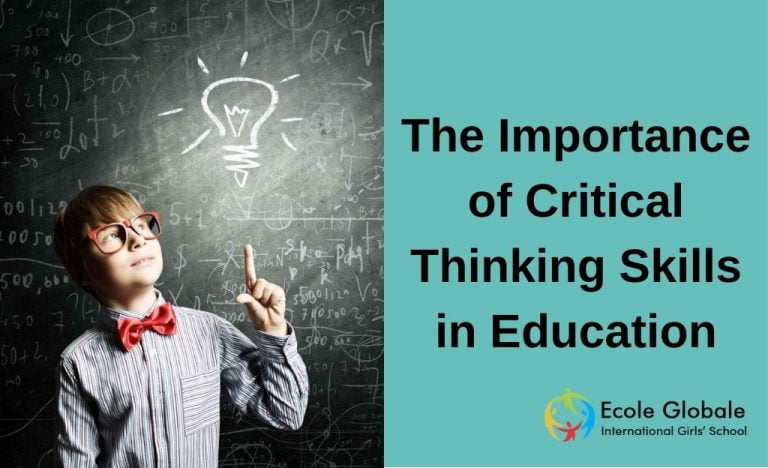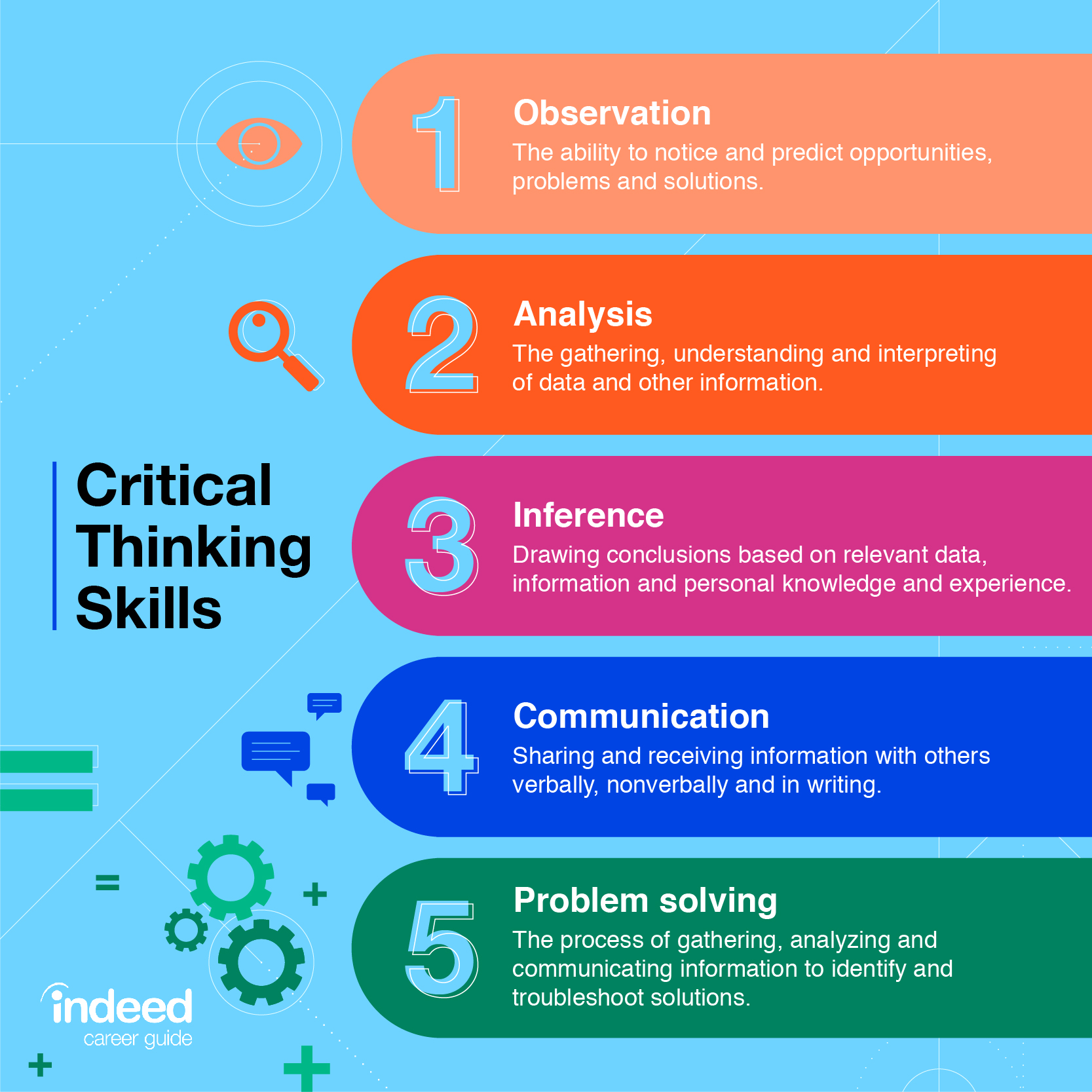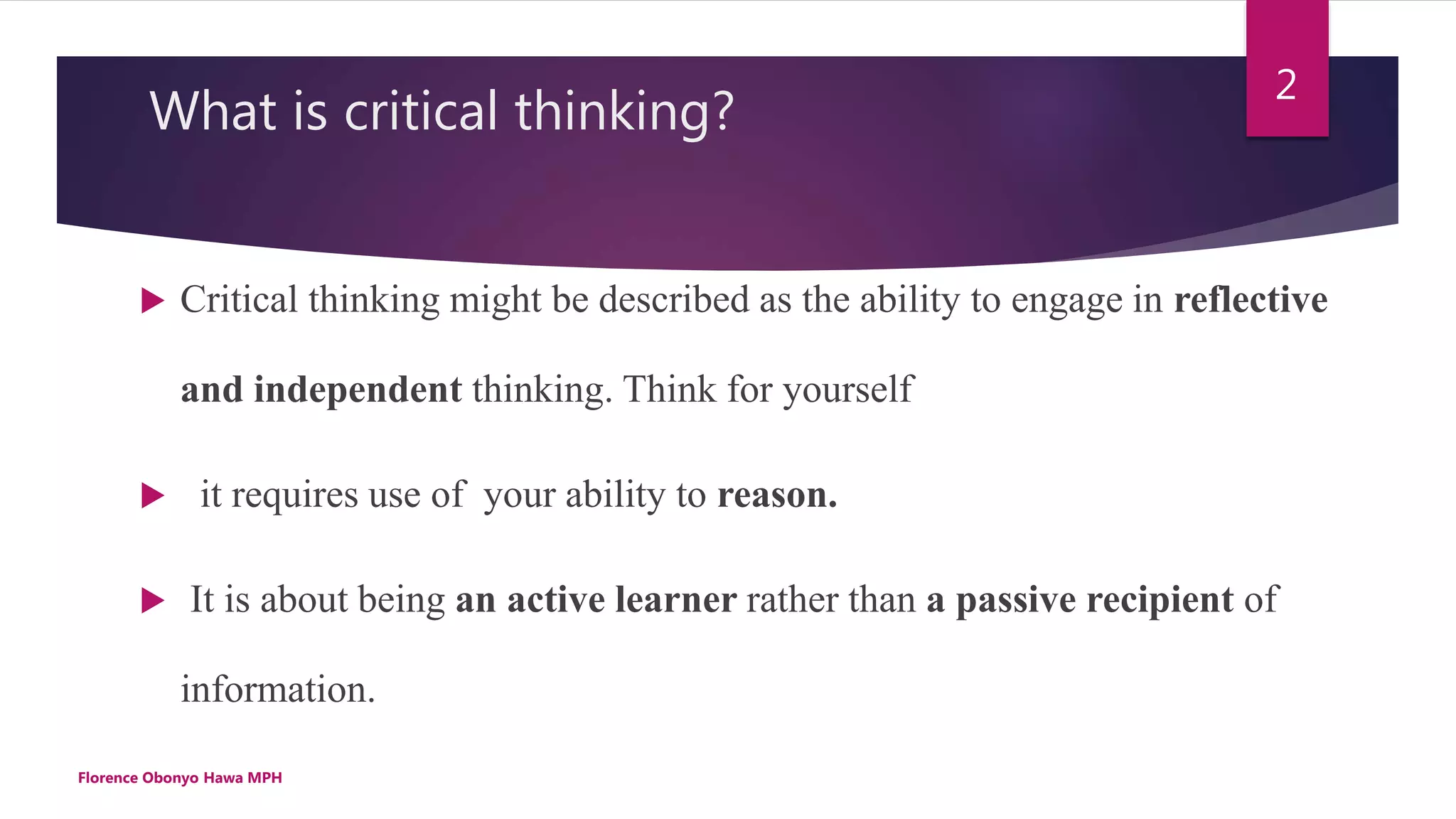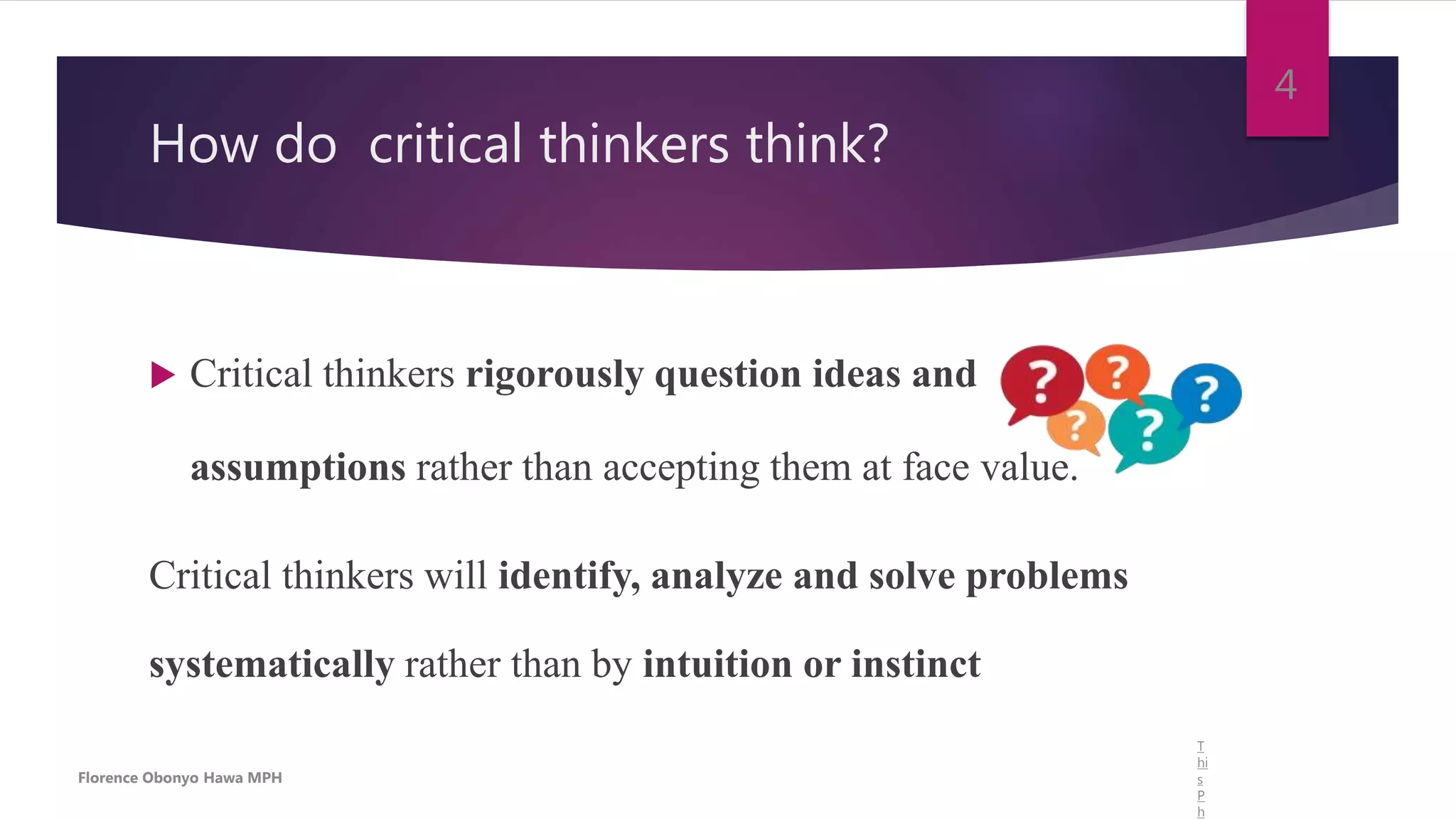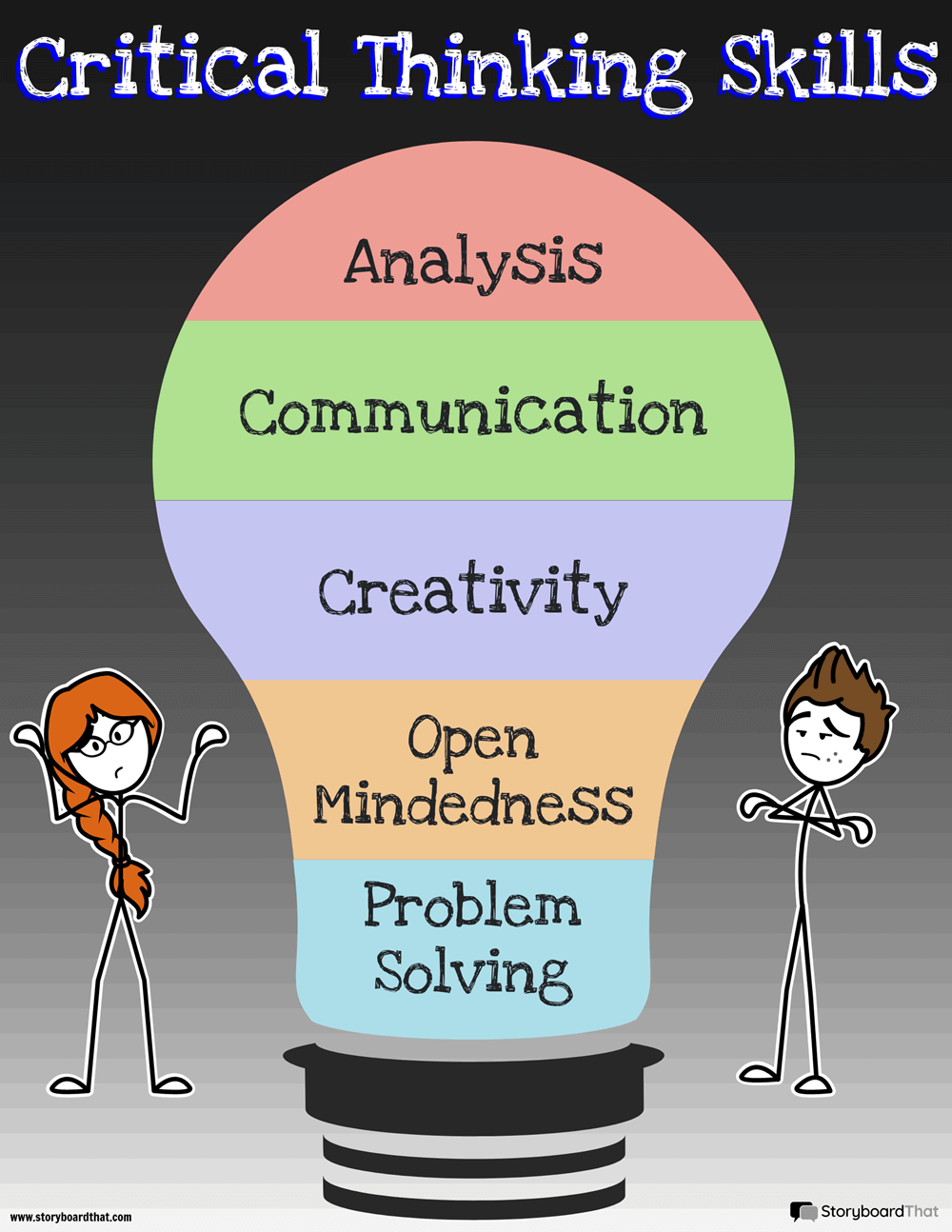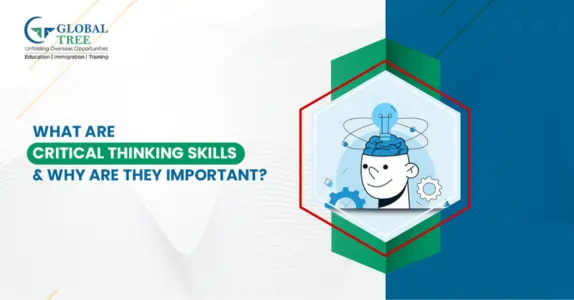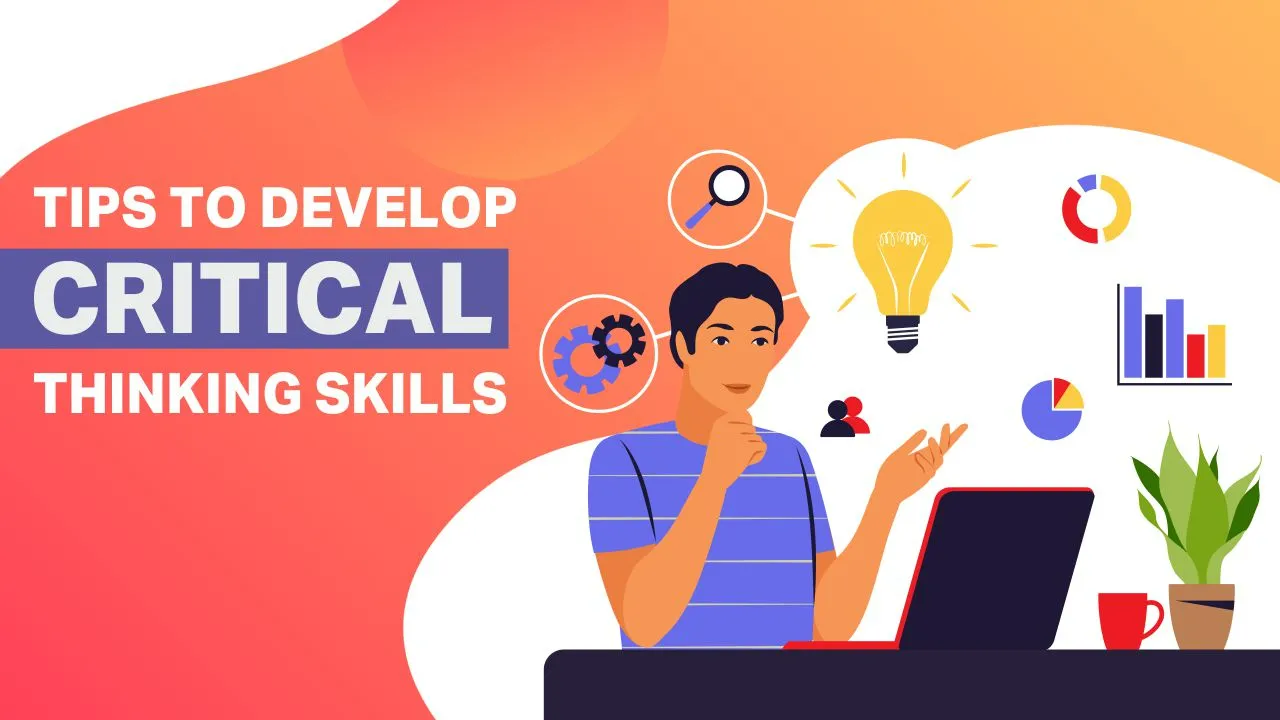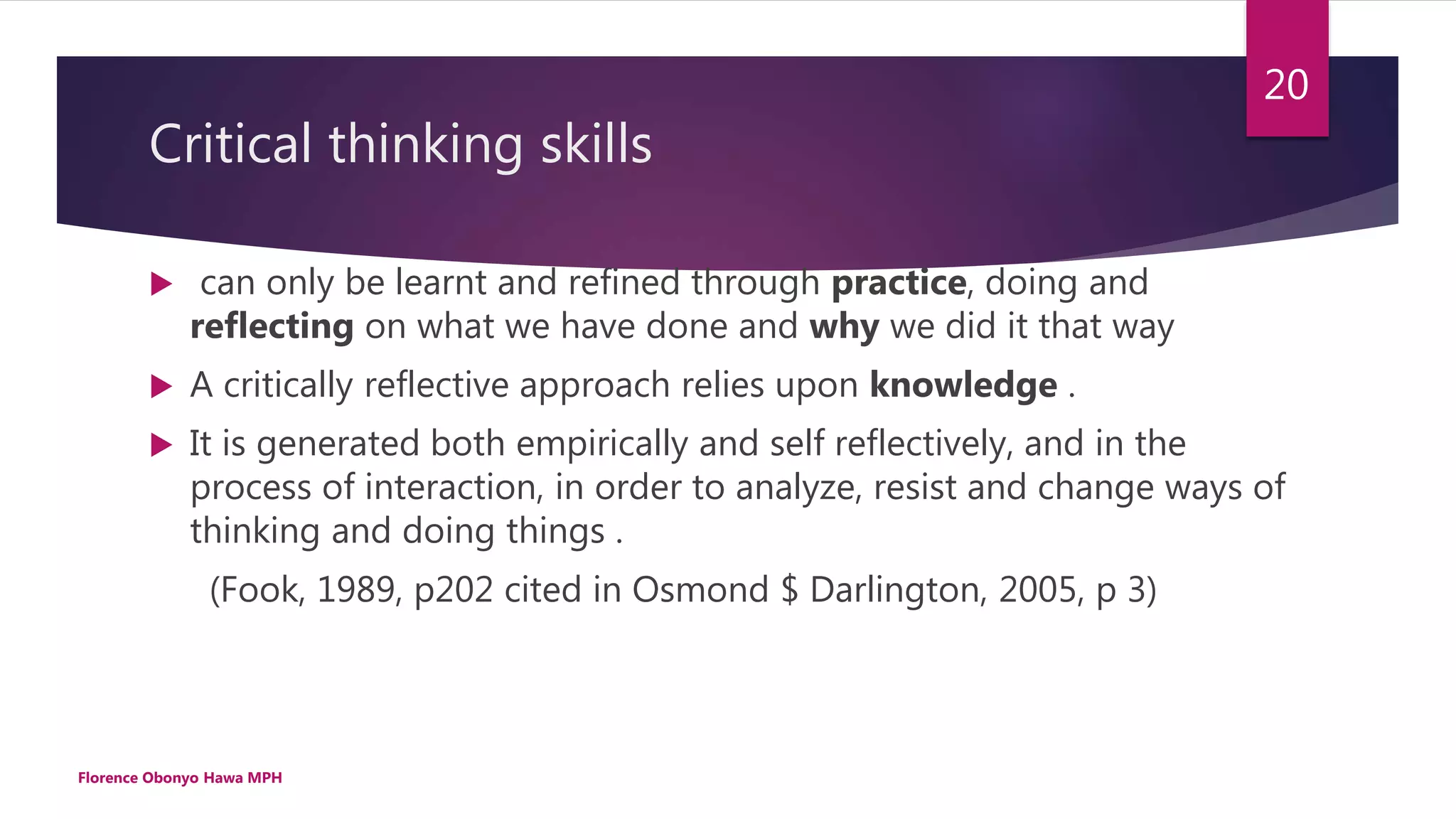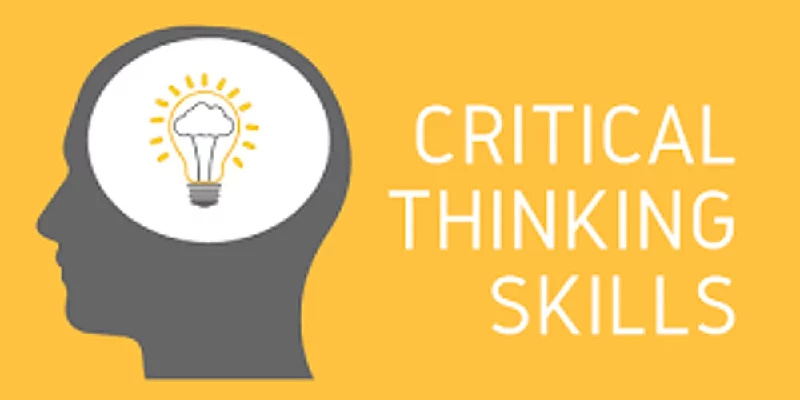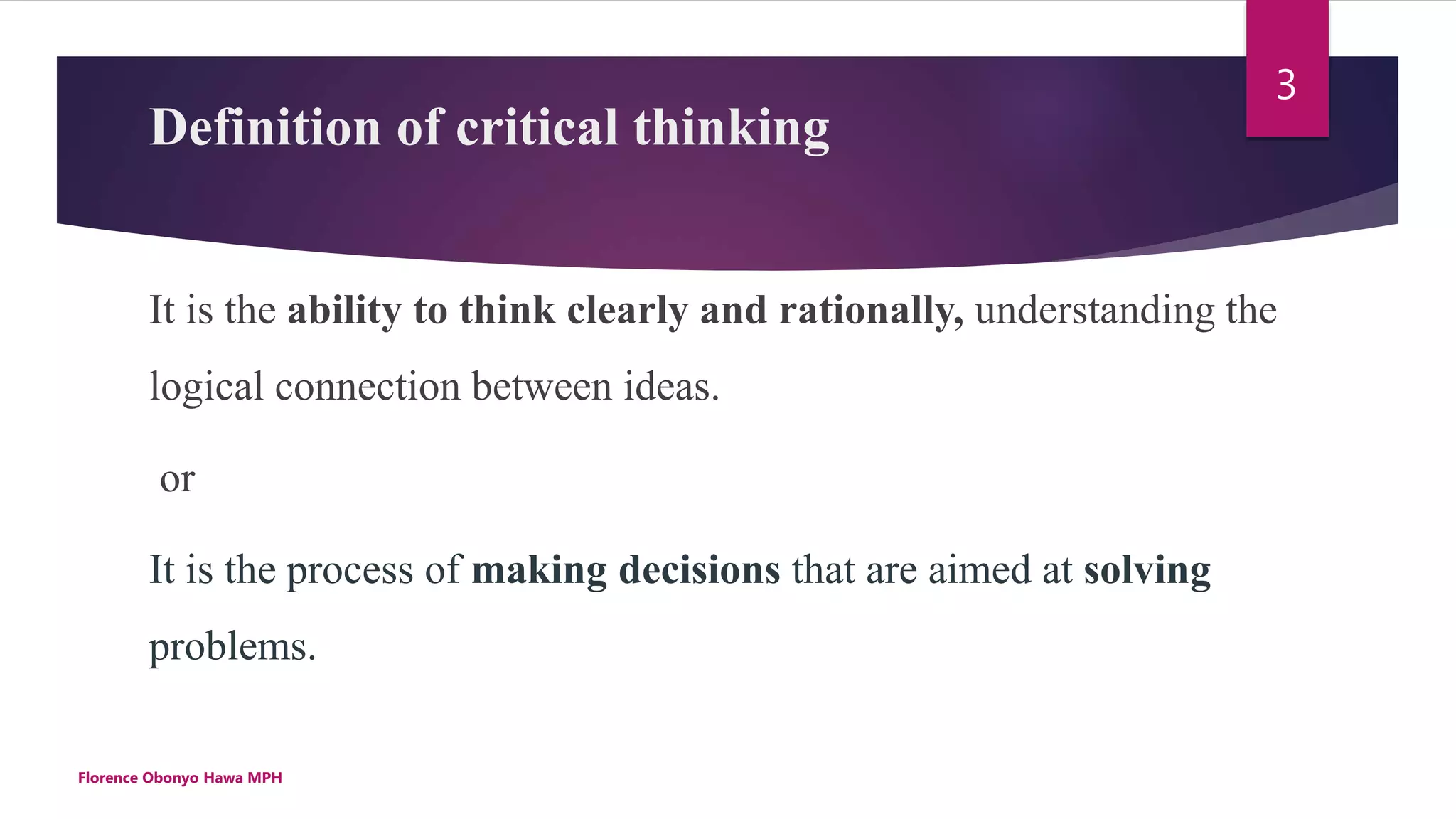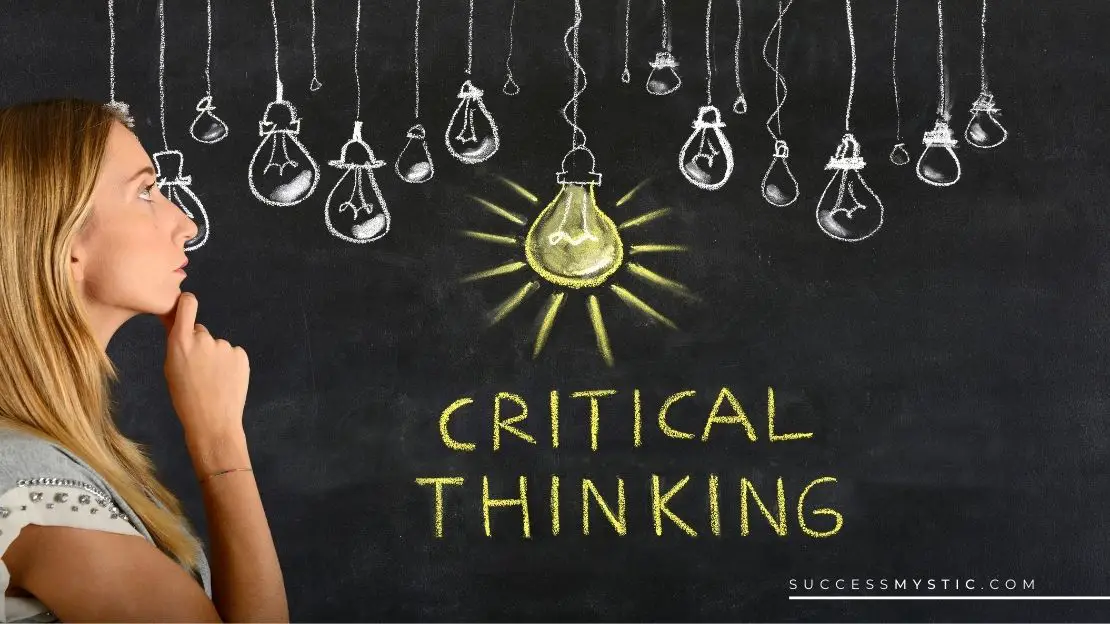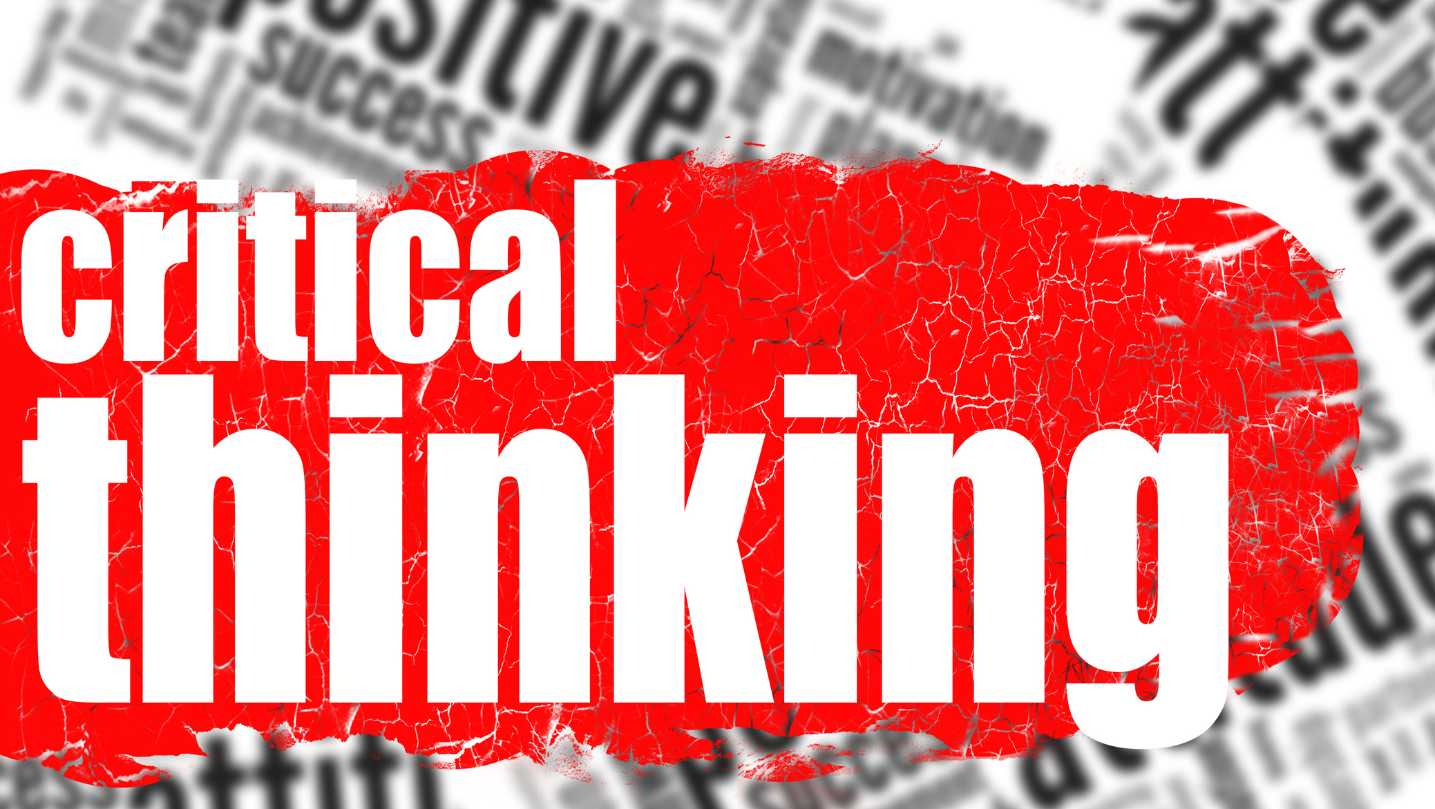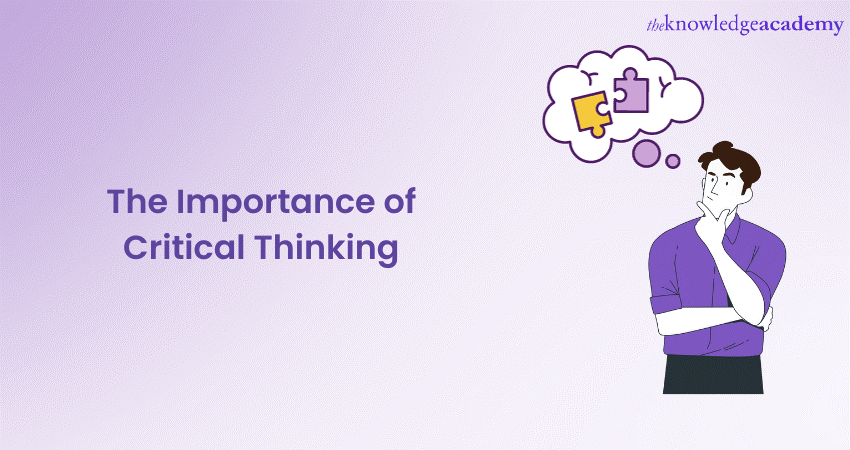Why Is It Important To Develop Critical Thinking Skills

In today's rapidly evolving world, marked by information overload and complex challenges, the ability to think critically is no longer a luxury, but a necessity. It’s the bedrock of informed decision-making, effective problem-solving, and responsible citizenship.
Critical thinking equips individuals to analyze information objectively, discern truth from falsehood, and form well-reasoned judgments. This skill is crucial for navigating personal and professional life, contributing meaningfully to society, and adapting to constant change.
Why Critical Thinking Matters
Improved Decision-Making: Critical thinking helps individuals evaluate evidence, identify biases, and consider alternative perspectives before making decisions. A study by the Foundation for Critical Thinking found that individuals with strong critical thinking skills are better equipped to make sound judgments in various aspects of their lives, from financial planning to health choices.
Enhanced Problem-Solving: Complex problems require more than just surface-level solutions. Critical thinkers can break down complex issues, identify root causes, and develop innovative solutions. According to the World Economic Forum, problem-solving is consistently ranked as a top skill employers seek.
Greater Creativity and Innovation: Thinking critically encourages exploration of new ideas and perspectives. It enables individuals to challenge assumptions and think outside the box, fostering creativity and innovation. Research from Harvard Business Review suggests that companies that prioritize critical thinking are more likely to be innovative and adaptable.
Better Communication Skills: Critical thinking sharpens communication skills by enabling individuals to articulate their ideas clearly and persuasively. It also improves their ability to listen actively and understand different viewpoints. A survey by the National Association of Colleges and Employers revealed that communication skills are highly valued by employers across all industries.
Responsible Citizenship: In a democratic society, informed citizens are essential. Critical thinking empowers individuals to engage with political issues, evaluate information from various sources, and make responsible decisions. A study by the Center for Information & Research on Civic Learning and Engagement (CIRCLE) shows a direct correlation between critical thinking skills and civic engagement.
Developing Critical Thinking Skills
Critical thinking isn't an innate ability; it's a skill that can be developed and honed through practice and training. Educational institutions, workplaces, and individuals can take steps to foster critical thinking skills.
Formal Education: Incorporating critical thinking into curricula at all levels of education is vital. This includes teaching students how to analyze information, evaluate arguments, and construct their own well-reasoned opinions.
Workplace Training: Employers can provide training programs that focus on critical thinking skills to improve employee performance and decision-making. These programs can cover topics such as problem-solving, decision-making, and communication skills. Companies like Google and Apple invest heavily in employee training programs focused on critical thinking.
Self-Directed Learning: Individuals can actively improve their critical thinking skills through self-directed learning. This can involve reading books, taking online courses, and engaging in activities that challenge their assumptions and perspectives.
What steps should be taken?
Invest in education and training programs. Promote open dialogue and debate. Encourage curiosity and questioning.
The ongoing development of critical thinking skills is essential for navigating the complexities of the 21st century. Schools, workplaces, and individuals must prioritize the cultivation of these skills to ensure a more informed, innovative, and responsible future.
